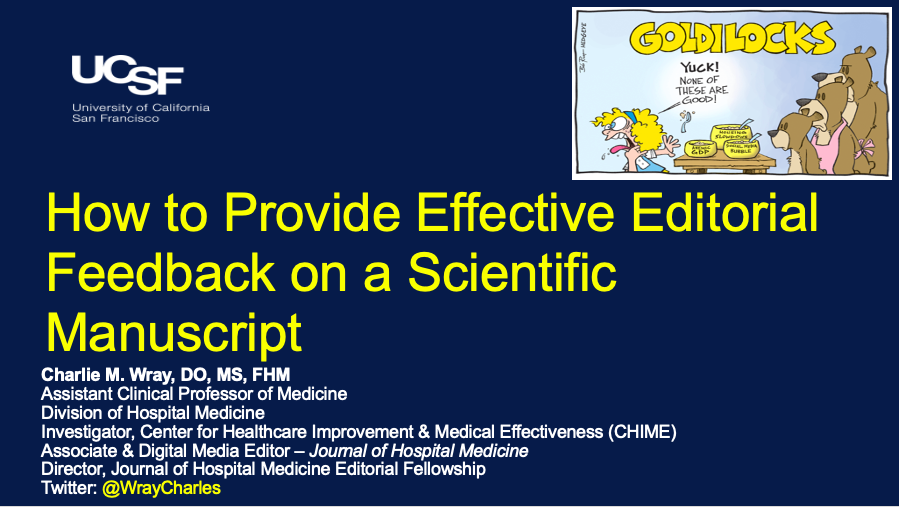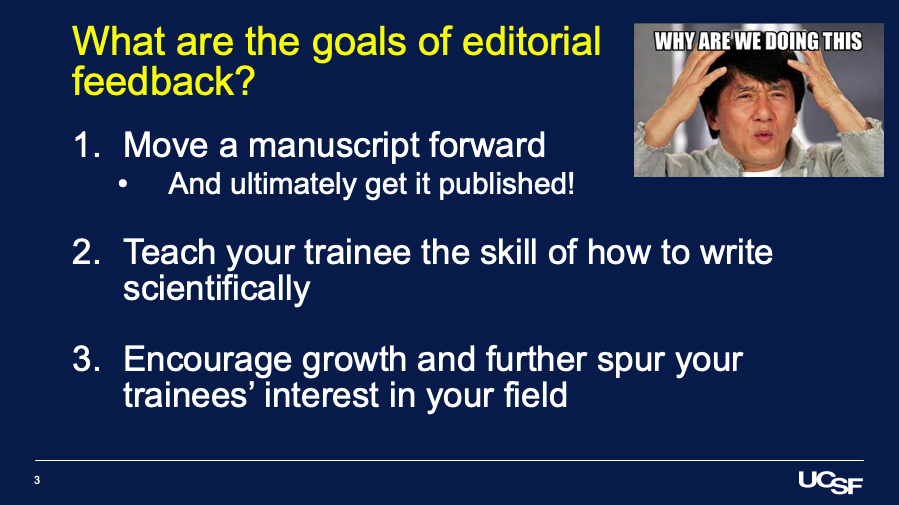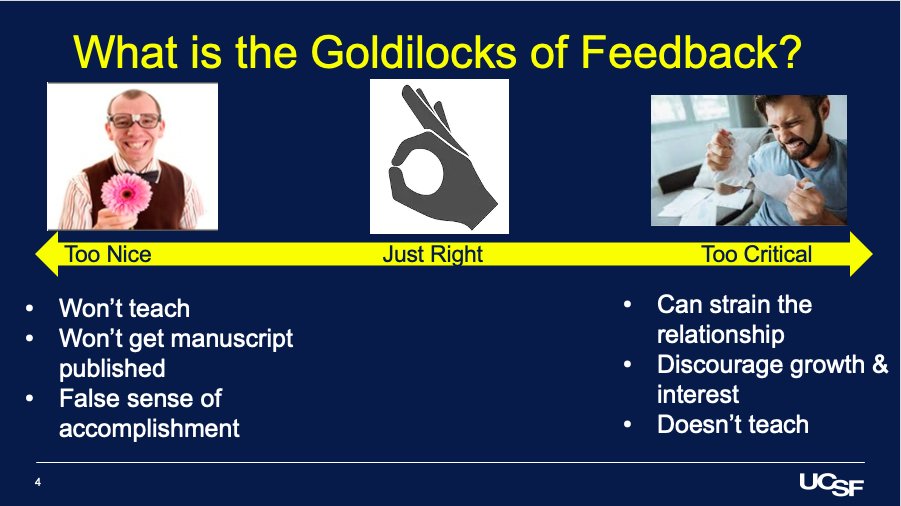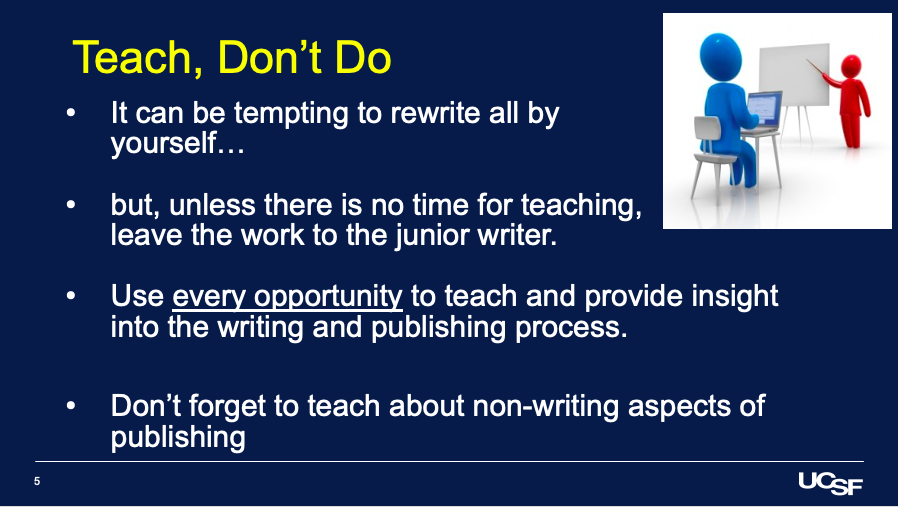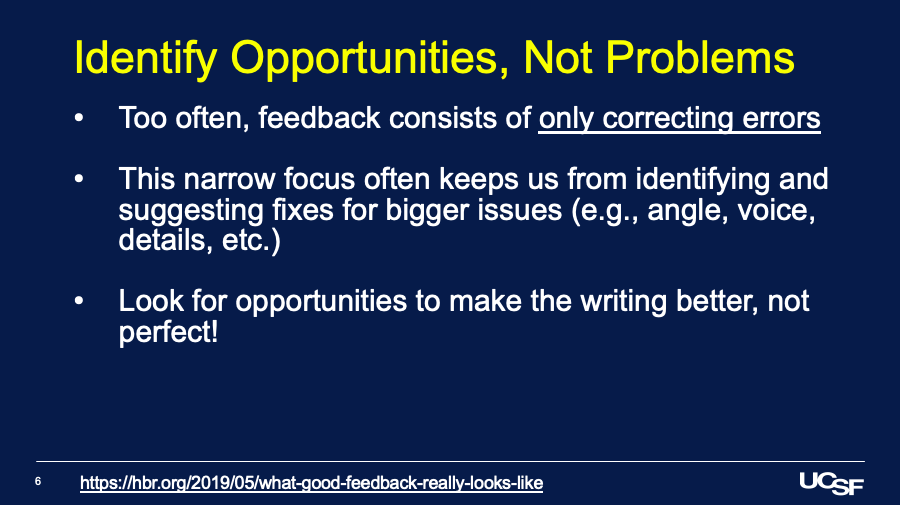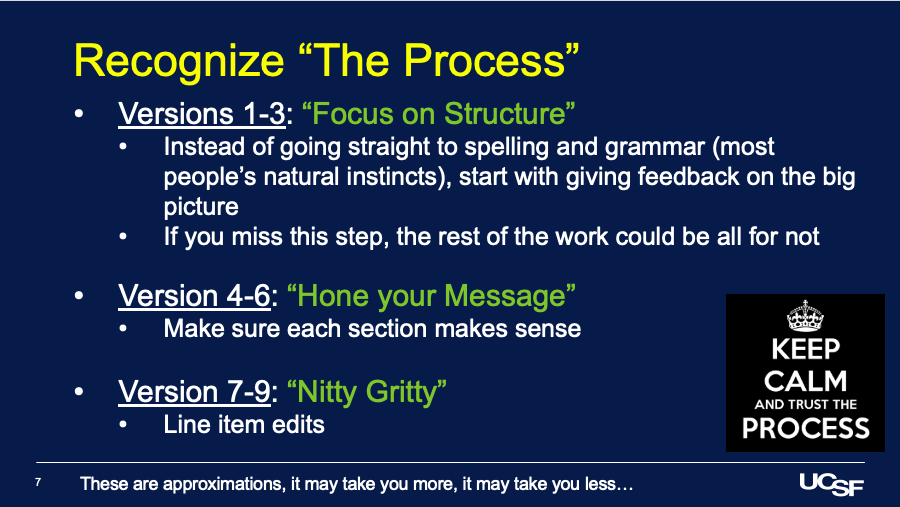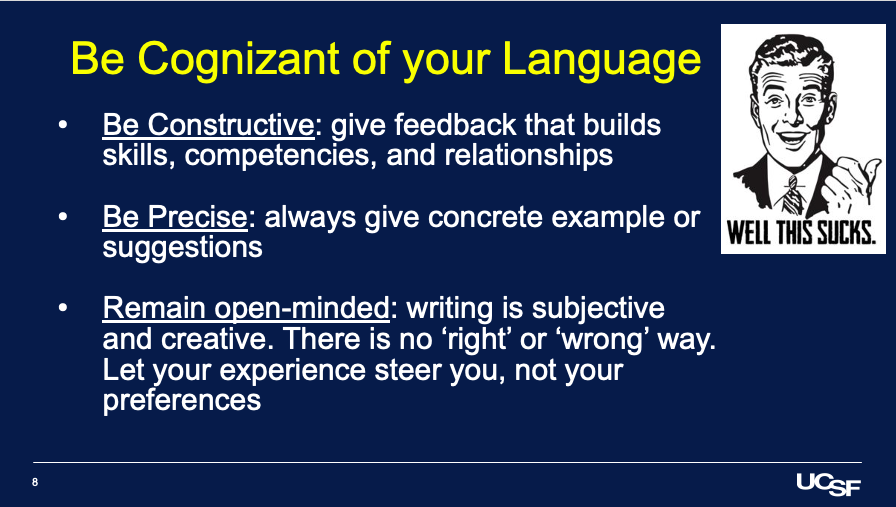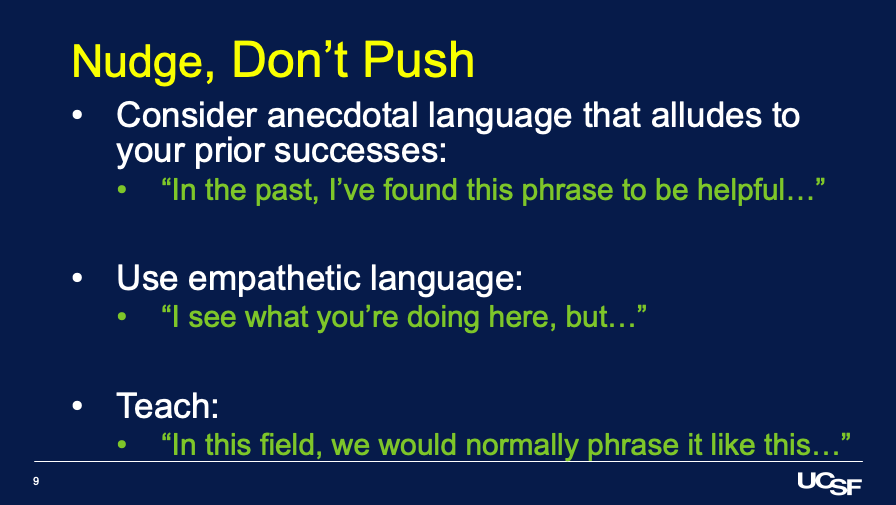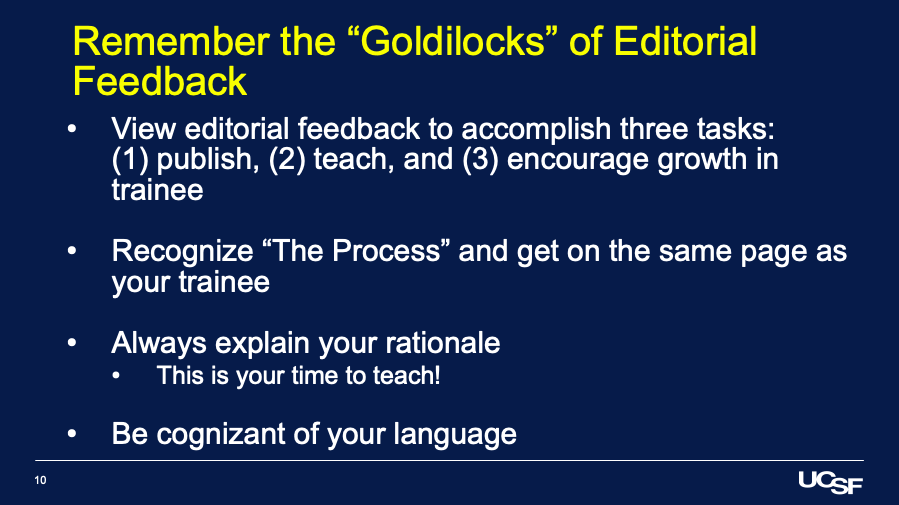1/ A quick and brief #Tweetorial on how to provide editorial feedback on a medical or scientific manuscript. Or as I like to say “Finding the Goldilocks of giving Feedback – Not too harsh, but no too nice...”
2/ Editorial feedback is a primary means of interaction in academics – how people experience it can drastically affect their career course, well-being, and their future impact on others. This highlights the importance of optimizing how you perform this task…
3/ First and foremost, It’s always important to keep your goals in mind. While #1 is the more proximal and obvious goal, if you forget about goal 2 & 3 you will win the battle, but lose the war…
4/ Don’t be your mentees personal ‘Reviewer #2’. Being overly critical won’t help accomplish any of your goals and will discourage all but the most resilient of mentees. Being too nice won’t teach or get you published. It’s a fine balance. Let’s see how you can accomplish this…
5/ As the adage goes, “Give him a fish, feed him for a day. Teach him to fish, feed him for life”. Again, not only is your job to get the paper published, but to further develop that individual and deepen their interest in your field
(PS. This will help your career, too!)…
(PS. This will help your career, too!)…
6/ While it’s important (and needed) to correct mistakes, don’t forget to find what the writer is doing well and build off that. And, as a mentor once told me, “Don’t let perfect be the enemy of good”...
7/ Recognize & share with your trainee your structure to this process. If everyone knows the game plan and where you’re at in that plan, the process will be smoother/easier for all.
Remember, Rome wasn’t built in a day, neither is a manuscript…
Remember, Rome wasn’t built in a day, neither is a manuscript…
8/ Trainees are still developing “thick skin”-so be careful how you phrase your criticism. Overly critical language can be disheartening, while too much praise won’t help the trainee learn (or improve the manuscript).
The best way to navigate this is to always explain why…
The best way to navigate this is to always explain why…
9/ Some example of constructive language. Again, recall goal 2 & 3 (“Teaching” and “Encouraging growth”). Just think about how you would want someone to critique something you spent hours/days working on…

 Read on Twitter
Read on Twitter